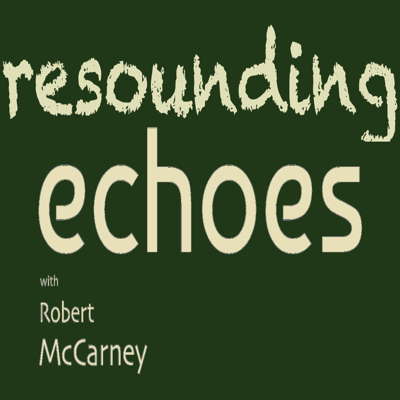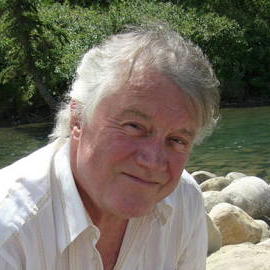- Jess Gillam
- Reginald Goss-Custard
- Franz Dümmler
- Hikaru Hayashi
- Appian Publications and Recordings
- Charles Tournemire
- Asia
- Mikhail Gorbachev
Seiji Ozawa
Japanese conductor Seiji Ozawa was born on 1 September 1935 in China - at Shenyang, then known as Mukden. He began piano lessons at seven, and when his family returned to Japan in 1944, he studied piano with Noboru Toyomasu. He broke two fingers during a rugby game in 1950, and gradually shifted his studies with Hideo Saito at the Toho Gakuen School of Music towards conducting and composition. While he was still a student, he worked with the NHK Symphony Orchestra and the Japan Philharmonic Orchestra.
Ozawa studied in Europe and won first prize at the 1959 Besançon conducting competition in France, which opened up his career to international work. Charles Munch invited him to attend what's now known as Tanglewood, to study with Munch and with Pierre Monteux. He won the Koussevitzky Prize for outstanding student conductor and moved to West Berlin to study with Herbert von Karajan. He was noticed by Leonard Bernstein, who invited him to be assistant conductor of the New York Philharmonic Orchestra, and he became the only conductor to have studied with both Karajan and Bernstein.
At the beginning of his career he was mostly conducting the classics, learning each piece as it came up. Later, he increasingly conducted twentieth century and contemporary music and gave first performances.
He was the first music director of the Ravinia Festival (1964-8), music director of the Toronto Symphony Orchestra (1965-9) and music director of the San Francisco Symphony Orchestra (1970-76). In 1970 he became joint artistic director with Gunther Schuller of the Berkshire Music Festival in Tanglewood, and then he became music director of the Boston Symphony Orchestra (1973-2002 - the longest tenure of any of the orchestra's music directors). From 2002 until 2010 he was music director of Vienna State Opera.
In Japan in 1984, with another Japanese conductor, Kazuyoshi Akiyama, he founded the Saito Kinen Orchestra, named after his teacher. In 1992 he founded the Saito Kinen Festival Matsumoto - now known as the Seiji Ozawa Matsumoto Festival - and in 2005 he founded Tokyo Opera Nomori.
Illness began to affect his work in 2006, and in 2010 he cancelled all his engagements for six months to have treatment for oesophageal cancer. He also suffered from pneumonia, shingles and lower back problems. Seiji Ozawa died from heart failure at his home in Tokyo on 6 February 2024, aged eighty-eight.
A selection of articles about Seiji Ozawa
Classical music news - Nathalie Stutzmann - The French conductor has signed a new exclusive recording agreement with Erato
Spotlight. Cinematic Imagery - Gerald Fenech warmly recommends film music by John Williams, played by the Saito Kinen Orchestra. 'Strongly recommended.'
Classical music news - February 2024 Obituaries - Our summary of those the classical music world has lost this month
CD Spotlight. Overwhelming Performances - Previously unreleased recordings by Jessye Norman, heard by Gerald Fenech. 'Unmissable for all opera buffs.'
CD Spotlight. A Compelling Account - Stravinsky for orchestra, enjoyed by Geoff Pearce. 'Mäkelä and the Orchestre de Paris share a compelling vision in both works, and are on their very best form.'
Ensemble. The Craftsman and the Icon - John Dante Prevedini reports from Tanglewood
CD Spotlight. The Magic of Ballets Russes - Giuseppe Pennisi listens to Warner Classics' box set. '... a gem which should be on the shelves of all those interested in the music of the early decades of the twentieth century ...'
CD Spotlight. Two Fine Violinists - Stephen Francis Vasta listens to music by Erich Wolfgang Korngold. 'Even the Violin Concerto ends with a downward chordal scale that 'resolves' to a dissonance, "à la" Charles Ives!'
DVD Spotlight. Panache and Style - Janácek's 'The Cunning Little Vixen', reviewed by Robert Anderson. '... much bewitching music ...'
Ensemble. Brisk Ebullience - Lawrence Budmen sends a second report from this summer's Tanglewood Festival
Ensemble. Tonal Luxuriance - Lawrence Budmen reports from Tanglewood 2009
Ensemble. Tanglewood and Beyond - The sounds of summer in the Berkshires, reviewed by Lawrence Budmen
Baton Magician? - David Stahl in conversation with Tess Crebbin about Bernstein, Mahler and German-language opera



